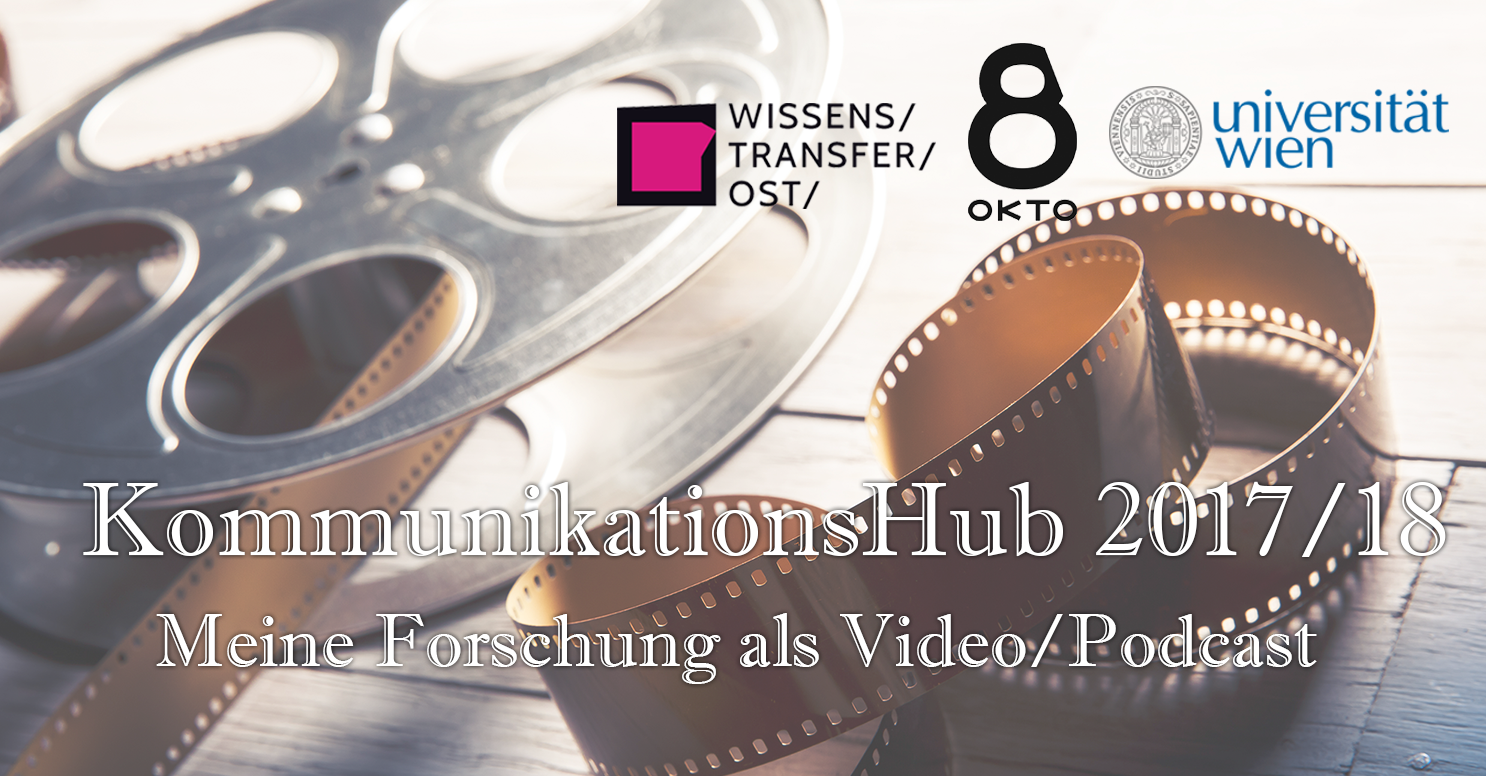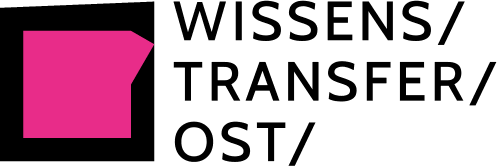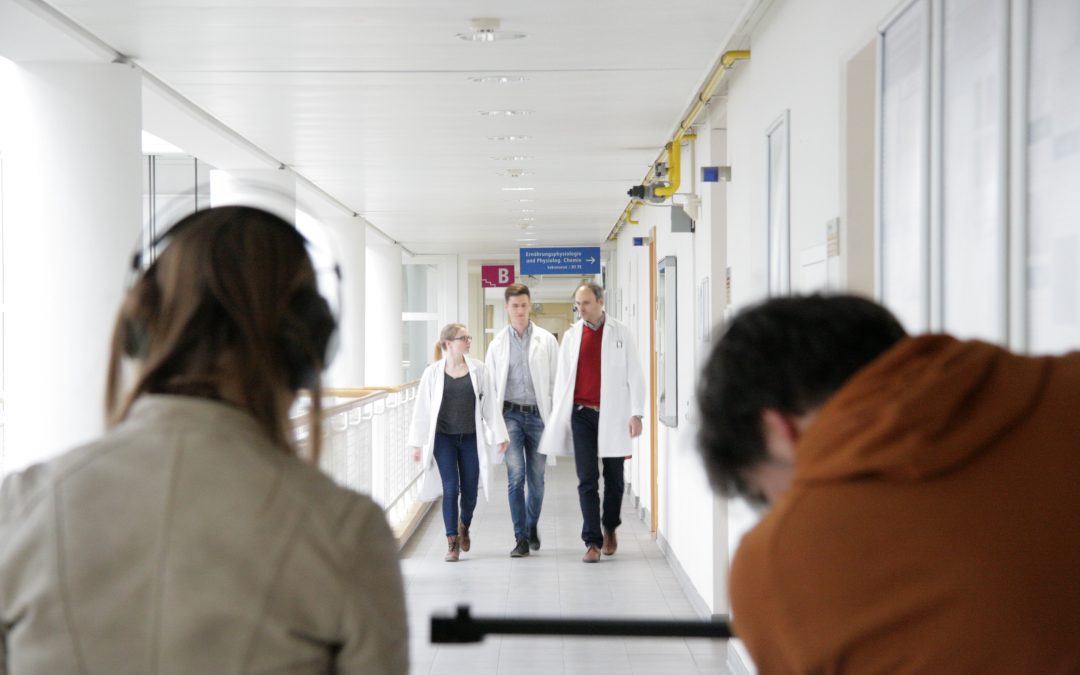Im Rahmen des WTZ Ost Weiterbildungsprogramm hatten auch dieses Jahr Nachwuchswissenschafter_innen aus unterschiedlichen Disziplinen die Möglichkeit ihr eigenes Video über ihre Forschung zu produzieren.
In Kooperation mit OKTO wurden drei ausgewählten Forscher_innen-Teams Expert_innen zur Seite gestellt, die sie Schritt für Schritt durch den Prozess der Videoproduktion begleitet haben. Die Teams bekamen Einblicke in die Arbeit eines Wissenschaftsredakteurs und lernten in Workshops die Prinzipien der Formatentwicklung, des visuelles Storytellings sowie der Film- und Schnitttechnik kennen. Am Ende entstanden drei spannende Kurzfilme zur Forschung aus den Lebens-, Natur- und Sozialwissenschaften.
Die Ausstrahlung der Kurzfilme startet am Montag, den 25. Juni 2018, um 20:00 Uhr auf OKTO.
Alle im Rahmen des WTZ Ost produzierten Videos gibt es auf unserem YouTube-Channel zu finden.

From nature to bionic proteins through computer simulations
Each melody is unique per se, but all of them are composed by the same set of building blocks: the 7 notes, just played in different order. The melodies of Nature are proteins, where different 1D sequences of the same set of building blocks (the amino-acids) drive them to fold automatically into different and unique 3D structures. Computational studies can be used to understand the key ingredients that make this process possible, and apply the same ingredients for designing new artificial materials that are able to self-assemble into specific chosen structures.
„At the beginning it was a real challenge for us, to find metaphors and images to describe our work, since our research is computational, so everything is abstract and we do not have a laboratory to show. It was really interesting to work on that, and we were guided though trials and errors and professional feedback to find images that could represent our research in a visual and immediate way. Finally the day of the shooting came: it has been real fun to try for the first time to shoot a professional video!“ (Chiara Cardelli, Computational Physics, University of Vienna)
Drugging Cancer
Cancer is the second leading cause of mortality worldwide. Approximately 1 in 3 people will develop some form of cancer in their lifetime. The number of new incidents and the death toll can be overwhelming. There is however an unprecedented mobilisation, on a global scale to tackle the disease and develop improved, life-saving therapies. At the University of Vienna we are developing a novel class of small molecule STAT3 inhibitors, with the potential to be used as standalone anticancer agents, or in combination with existing treatments, to enhance their effects and reverse the often acquired resistance to chemotherapy. The INDICAR fellowship, promotes the interaction between different cancer research disciplines, and fully supports the impact of our innovative drug discovery programme at the University’s “Translational Cancer Therapy Research” cluster. This is a highly collaborative effort, with international partnerships, aiming to develop novel antitumour agents, which could be ultimately used, to “drug cancer” in the clinic for the benefit of cancer patients.
“The WTZ Ost project “My research as video” was a fantastic opportunity to communicate our work, and provide a glimpse of our job which is the discovery of new cancer drugs. A job which is too often filled with failures and frustrations, but always re-emerges as a most worthy mission upon any encouraging new experimental results and promising new leads, which could bring us closer to a new therapy. Cancer is a devastating disease and can affect us all, our friends and our families without any discrimination. What might not be known to the wider public, is the huge and tireless efforts undertaken in laboratories – many in academia – around the clock, worldwide, to discover new treatments. We set out to show this reality, the scientists, ordinary people, like us, on an extraordinary quest: striving to intersect the paths of millions of cancer patients, and help them continue with their lives, by delivering new therapeutic interventions-especially where there are currently none. This dialogue, between researchers and patients, is often fragmented, or even muted, but projects such as this by WTZ Ost, help raise awareness, reorient our perception of each other and ultimately, generate hope! The organisation provided us with the seamless project management and all the necessary training and were by our side throughout the process of producing this film, from conception to showcasing it to the public. OKTO community TV, and namely Roland de Roo, Evamaria Bauer and Barbara Eppensteiner, fully endorsed and captured our vision, and translated our thoughts and feelings into images, in the best possible way. It was a pleasure working with such highly motivated, supportive, and inspiring team of professionals. We learned so much in the process and we are pleased by the end product and humbled watching what is our everyday routine, being communicated in such an evocative way” (Konstantinos Kiakos, “Translational Cancer Therapy Research” research cluster, Institute of Inorganic Chemistry, University of Vienna)
AUSSDA – Von Daten Umringt
AUSSDA – The Austrian Social Science Data Archive sammelt, archiviert und macht sozialwissenschaftliche Daten zugänglich. So können die Daten, die uns umgeben, nicht nur von Forschenden, sondern von allen Interessierten genutzt werden. An drei Standorten in Österreich (Wien, Linz und Graz) bietet AUSSDA persönliche Beratung und nutzerfreundliche Lösungen an.
„Der Call für “Meine Forschung als Video” traf sich gut, da wir immer neue Wege suchen, um unsere Arbeit bekannt zu machen und anschaulich zu präsentieren. Wir besuchten den Vorstellungsworkshop sowie einen Workshop zu Storytelling beim WTZ und lernten bei Okto, was zu beachten ist, wenn wir unsere tägliche Arbeit als informative und unterhaltsame Geschichte erzählen wollen. Für uns eine besondere Herausforderung: unser Alltag spielt sich vor Computerbildschirmen ab, wir mussten also einen Weg finden, raus aus dem Büro zu kommen und die Geschichte auch an anderen Orten zu erzählen. Das bedeutete einen spannenden Drehtag mit vielen Szenen und Ortswechseln. Die unterschiedlichen Teile des Videos wurden perfekt von Evi und Roland von Okto kombiniert. Wir sahen nicht nur unsere ursprüngliche Idee widergespiegelt, sondern auch zusätzliche Aspekte – wie die animierten Grafiken, die in unserem Video eine wichtige Rolle spielen. Unsere Vorstellungen wurden sowohl erfüllt als auch übertroffen. Wir fühlten uns im Prozess der Videoproduktion perfekt begleitet, eigneten uns ganz neues Wissen an, konnten unsere Arbeit kreativ vorstellen und haben noch dazu ein tolles Video, das wir in Zukunft oft nutzen werden! My science on video – Prädikat: besonders wertvoll!“ (Veronika Heider und Lena Raffetseder, AUSSDA)

